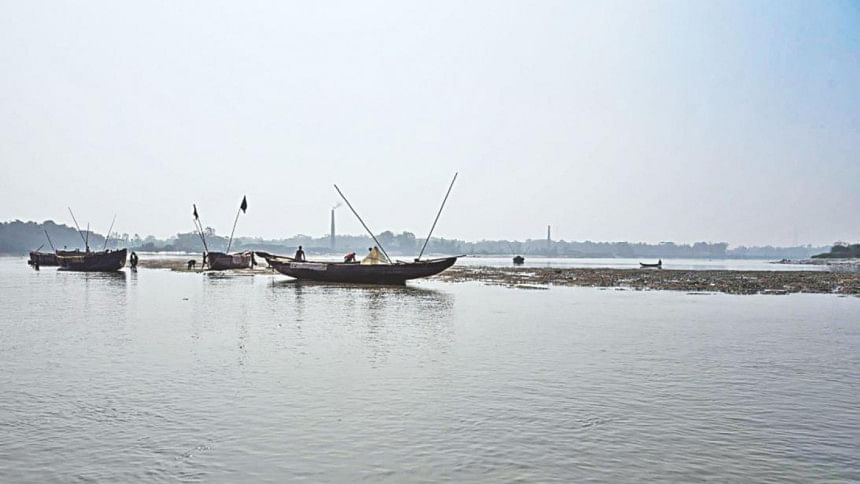This could have been avoided

A study financed by the fisheries and livestock ministry has found that in the last seven years the Halda river has lost 26 of its fish species. The research found alarming causes for the loss of these species, chiefly: unplanned development, proximity of industries, dumping of industrial waste, and sand extraction. Over the years we have written about each of these issues and the loss of marine life in the river serves as example of the consequences such irresponsible practices can cause.
According to experts, Halda was home to at least 76 fish species in 2009. Within such a short span of time, about one-third of the fishes are now lost. This not only affects the livelihood of fishermen, but the biodiversity and ecological balance of the Halda. That development near the river has been unplanned and without any thought of its adverse effects that are evident from the study. A major cause of the loss is the building of dams, which has resulted in fewer planktons and reduced flow of water. Another example is of the permanent government ban on fishing permanently in parts of the water from 2010. Although this must have been done for a good reason, the lack of planning has meant the increase of one variety of fish which breed in huge numbers and thus reduce the amount of food for other species.
Finally, the lack of oversight, regulation, and implementation of existing laws to protect the river from illegal sand extraction and dumping of waste from nearby tobacco factories have added to the woes. Sadly, Halda is not the exception when it comes to these issues. We hope the study gives impetus to renewed efforts by the authorities to save our rivers and their biodiversity—after all none of the causes which led to the loss of fish species were unavoidable.

 For all latest news, follow The Daily Star's Google News channel.
For all latest news, follow The Daily Star's Google News channel. 







Comments